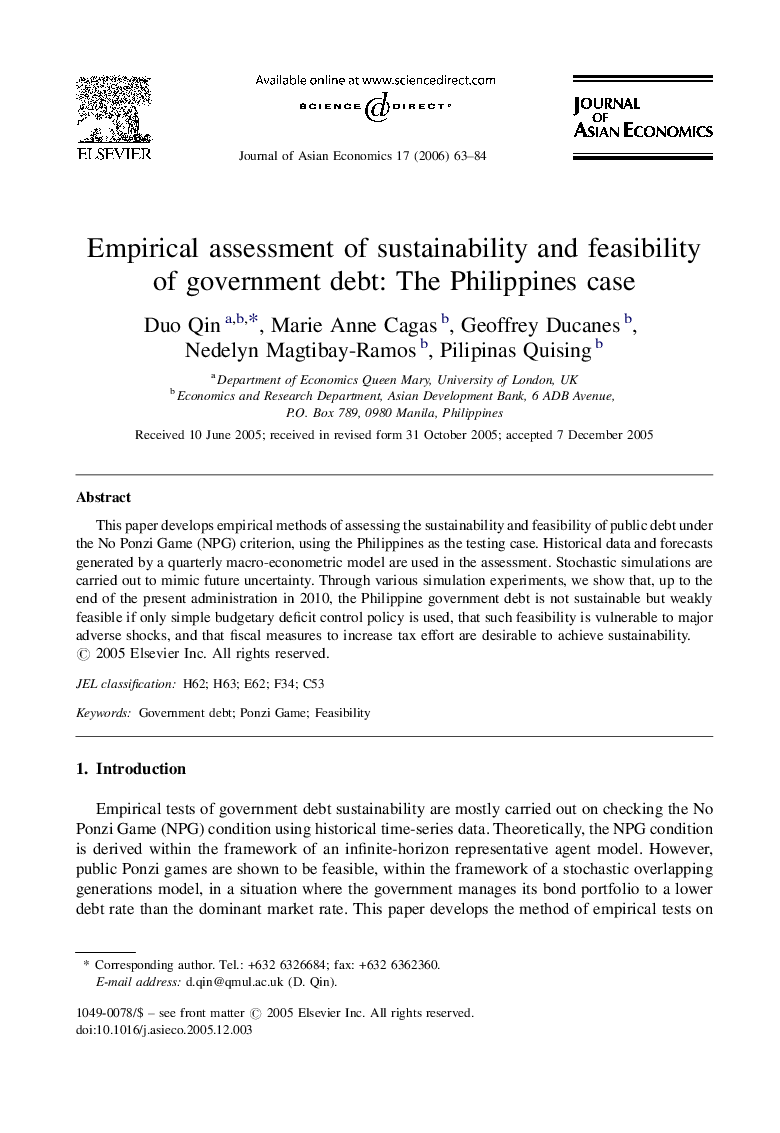| Article ID | Journal | Published Year | Pages | File Type |
|---|---|---|---|---|
| 5087946 | Journal of Asian Economics | 2006 | 22 Pages |
Abstract
This paper develops empirical methods of assessing the sustainability and feasibility of public debt under the No Ponzi Game (NPG) criterion, using the Philippines as the testing case. Historical data and forecasts generated by a quarterly macro-econometric model are used in the assessment. Stochastic simulations are carried out to mimic future uncertainty. Through various simulation experiments, we show that, up to the end of the present administration in 2010, the Philippine government debt is not sustainable but weakly feasible if only simple budgetary deficit control policy is used, that such feasibility is vulnerable to major adverse shocks, and that fiscal measures to increase tax effort are desirable to achieve sustainability.
Related Topics
Social Sciences and Humanities
Economics, Econometrics and Finance
Economics and Econometrics
Authors
Duo Qin, Marie Anne Cagas, Geoffrey Ducanes, Nedelyn Magtibay-Ramos, Pilipinas Quising,
